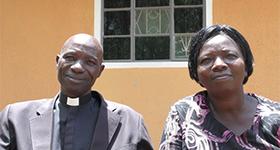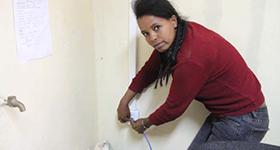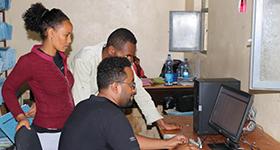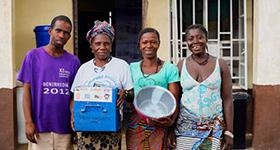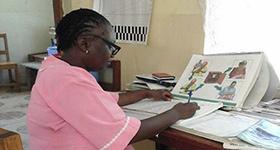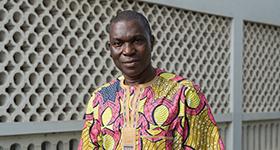Background
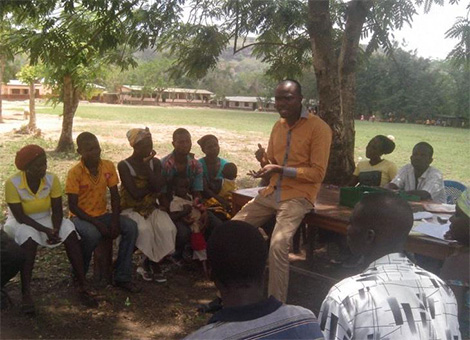
A DKT Community Representative in the Eastern Region gives family planning education to a community savings group in Oborpa, in the Manya Krobo Municipal district. Photo: F. Nuertey
Despite 98 percent of Ghanaian women knowing of at least one family planning method, only 50 percent report having ever used one (DHS; 2008).
Although modern contraceptive methods are widely available in family planning facilities across all ten regions of Ghana, convincing women to adopt a method continues to be a challenge. The most significant impediments to uptake are fear of side effects (26 percent) and opposition to use (16 percent; DHS 2008).
DKT International, a social marketing organization that has distributed family planning products in Ghana since 2011, is overcoming these barriers through the work of 29 Regional Community Representatives. As part of DKT’s mission to increase access to, and awareness of, family planning products at the community level, these on-the-ground mobilizers deliver educational sessions about the beneficial outcomes of family planning to various groups within their assigned geographic territories. These educational sessions are creating a difference for ordinary Ghanaians; DKT’s community outreach activities are helping women and young adults get the family planning knowledge they need through referrals to private and Ghana Health Service facilities.
Intervention
DKT’s Regional Community Representatives (RCRs) serve a vital purpose in combatting family planning misperceptions that exist in Ghana. To connect with various groups in their territories, RCRs use local languages to clearly articulate complicated family planning concepts in a way that is easy for audiences to understand. The lack of quality family planning resources has resulted in engrained beliefs about contraceptives, family planning and fertility that are often incorrect or incomplete. This misinformation commonly deters women from seeking further information or visiting a local health facility.
RCRs are breaking this trend by referring women and young adults to nearby family planning clinics. After an educational session, the RCR will give a referral coupon to interested audience members. The coupon that goes to the participant includes the contact information for the nearest clinic; the portion that remains with the RCR serves as a record of the referral- contact information for the participant, date, type of consultation, and other valuable data.
The mutually-beneficial relationship between the RCRs and the local private and public health facilities is equally important. Data-sharing practices between RCRs and clinical providers help both sides gain a holistic view what is needed to better serve the public.
Outcomes
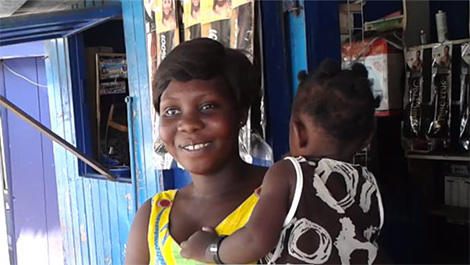
Sarah Awotee, a beautician at Sally Pee Beauty Salon in Cape Coast. Photo: B. Ackumey
Sarah is a beautician at Sally Pee Beauty Salon in the Central Region. Until June of this past year, she had never before used any family planning method. That changed after she met Bernice Ackumey.
Bernice is DKT’s Community Representative in the Cape Coast area of the Central Region. Bernice visited Sarah and her colleagues at the beauty salon to educate them of a way to secure a better future: one in which their reproductive health occurs by choice, not by chance.
“That day, I learned about different methods,” recalls Sarah. “It was nice to see samples of the products. She even brought a penis model for the condom demonstration!”
Though Sarah used to be shy about family planning, she is now confident; her preferred family planning method is the condom. She purchases them from her local chemical shop, which is stocked by Bernice, the RCR.
Since the RCRs completed their training at the end of January 2014, they have sold over 225,000 condoms to various traditional and non-traditional outlets, and they have reached over 180,000 people across Ghana with family planning education. Of these, more than 110,000 were then referred to a private or Ghana Health Service facility, for either family planning counselling or for service provision.

